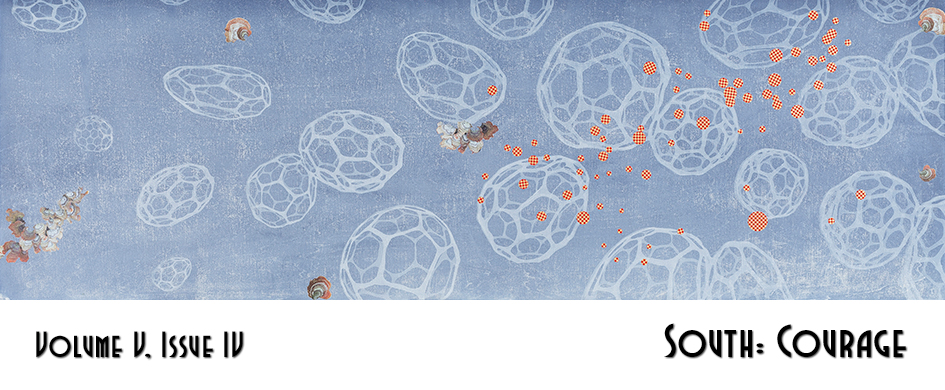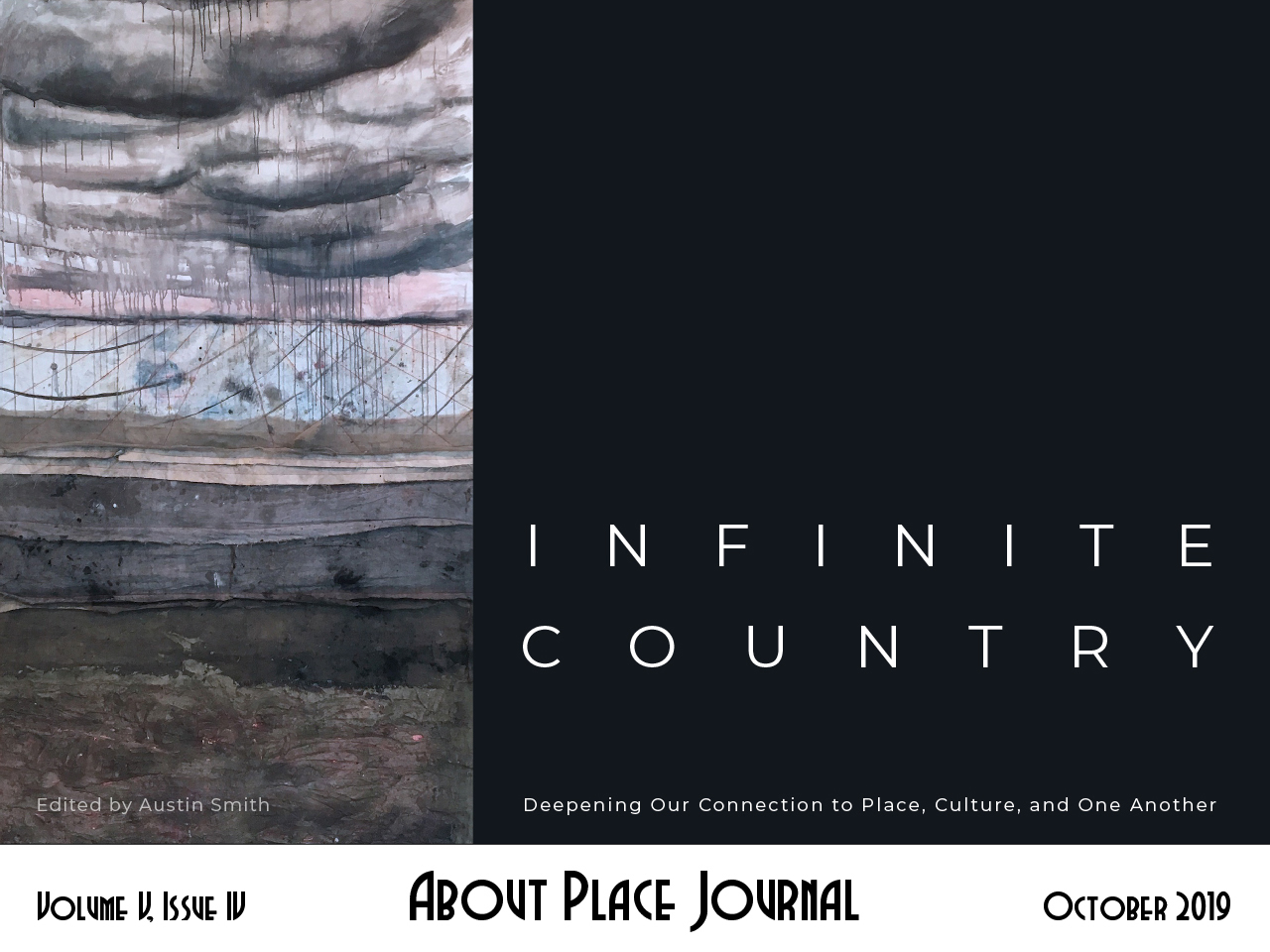Imagine, I, Faiza, with my green card working for the Telecom. In Youngstown, Ohio. 2016. Before the election.
I have spoken English a long time, familiar with it from school, where I excelled. My husband is an American, was a professor at a university back home. High position, little income. We had no choice but to come.
Here I can work, put my mind to use, and anyway our son does very well in school. Now in the fifth grade, Haithem, who was Haytham in Iran, now has the name of a football player. My husband Aadil was Alex before he became Muslim. I myself will always be Faiza.
While I keep my head covered, I remain discreet about my origins and do very well as a caller–so far, no complaints. The supervisor, Jim, an evangelical and devoted Republican called me “demure,” which I assume is a compliment, as is it not synonymous with feminine and submissive? This is how Iranian men like women to be too, although Jim’s cousin, a female, also an evangelical, is very loud and orders everyone from the dais in our call room like a general.
I sit in the third row between Drake2, a recovered addict–and Myra, a grandmother with five children and 10 grandchildren, whose photos wallpaper her booth. All varying shades of blond, they pose in cheerleading or football outfits in front of trailers or on a playing field. As Aadil says, “class A Americans.” I am still not sure what that means.
So far so good. Drake2 and I were in the same class, “learning the ropes,” graduating at the top of Telecom’s January group. They put us on the phone the third day. Most of the class quit before graduating. Either they cannot stay polite on the phone or cannot tolerate the long hours. People last two, maybe three months, I heard. There is a high rate of turnover, although Myra and a few others have been with the company for years. You can tell the long-timers because they are overweight, eat candy constantly and consume large quantities of coffee and pop. Their booths are filled with family and work photos, Telecom trophies and such.
Myra taught me how to time my breaks as, along with a half hour lunch, we are only allowed four minutes away from our booth three times a day. After that, they dock our pay. Aadil shook his head when I told him. What disgusts him about my employment makes me proud. I can take it. I am pleased to have a job. In Tehran, if you are female you can graduate at the top of your class and wind up doing housework the rest of your life. Anyway, as Aadil is only an adjunct here, we both have to work. “Together we can make it,” I tell him, raising my hand in a fist. Aadil covers it, saying it is unbecoming, even dangerous, for a woman with her head covered to raise her fist in a salute here.
My coworkers are nice, the males open doors, the women invite me to sit with them at lunch. They know only that my husband is an American who teaches and that I have a son. At some point the rumor spread that I am a good Catholic from South America and this explains my covered head and dark complexion. I have not spoken to the contrary.
One day someone announces we have to raise money for Republican presidential candidates. I mention how I signed a form when applying for this job that says I wish not to call for political purposes.
“Don’t you know? This is a Republican outfit, red down the line, evangelicals in league with the devil,” a woman whispered to me. Still, I know America is a democracy. They will not make me do what I do not wish to do.
First, my colleagues are asked to make calls for someone named Ben Carson. I read he is a doctor who has never held public office. He seems very distracted and does not do well during the debates. Then the company switches to Mike Huckabee, a Christian minister who has run for president previously. After he also does poorly in the Iowa caucus, the company moves on to support Donald Trump.
“Trump’s the one,” says young Luke in the lunchroom. Even away from the phones, most of the men at Telecom support him. “He’s just what we need. Less heart, more balls.” The women say little, just pick on sandwiches and salads.
The time we are asked to bring potluck to work, I make Ghormeh Sabzi.
“This is crazy good,” says Luke. “You can’t find this at Taco Bell.”
Everyone laughs and someone explains, “Taco Bell is not a real Mexican restaurant, dude.”
I smile. “It’s just stew,” then proudly share the recipe with two ladies.
I do very well on the phones, even when speaking, or rather listening to evangelical callers who expect me to echo their beliefs and enthusiasm. They request spiritual books and CDs by favorite pastors that include messages from God like the summons to vote for Trump, which seems unbelievable to me. Politics mixing with religion—in America! I only share this disbelief with Aadil. I also raise money for St. Jude Children’s Hospital, even after learning that Telecom takes all but one percent of donations mostly made by low-income people to help sick children.
One day a very overweight young woman named Lacy, who also works nights at the Wal-Mart, mentions that one of Trump’s sons has a foundation that supports St. Jude and isn’t that something. As my instinct for evil remains intact, I calmly respond, “I would not be surprised if that money is going to Trump’s campaign.”
The table breaks out in laughter. “You can’t do that here,” says Don, an older gentleman who wears an army fatigue jacket and was a soldier in Vietnam. He shakes a forefinger at me. “No can do in America.”
Another day, near the end of a shift, Drake2 asks me kindly why I keep my head covered and I tell him. He nods. “My cousin is Muslim, and I thought about it when I was in prison.” I wait, a part of me holding my breath, for the news to spread, but as far as I know, he keeps it to himself. A few days later I ask him why he calls himself Drake2. “After my favorite rapper–Drake.” He smiles and I return a slow nod, as I have seen others do, but I have no idea who he is referring to.
In our call room, TVs hang at four corners near the ceiling, the channels always on FOX. On Feb. 11, the TV shows thousands of Iranians marching and chanting “Death to America and Israel,” while commemorating the 37th anniversary of the 1979 revolution. I don’t know whether to shrink under my desk or raise a proud fist. These are my people. I am in this land.
Afterwards at lunch, a new guy says to Luke, ‘If I ever see an Iranian, I’ll just shoot him between the eyes, like a deer.” Both are hunters and compare weapons. Both own AK-15s. That night I have a nightmare that masked men are shooting up our cafeteria. The next day I tell Aadil about it and the conversation between Luke and the new guy. “Rural America is filled with ignorant people. They don’t mean harm,” says Aadil.
“Some of the women don’t support Trump, but most of the men do.”
“Those men feel powerless. In the end, the women will support what their men say because they too are powerless.”
“Even in America?”
“Yes.”
“I will not support Trump by making calls for him even though they are now recruiting those who refused by signing, even though the money is good, my colleagues say, if we get people to vote for him.”
“The company is Republican, what can you expect?”
“Yes, but I will not go so far. That man cheats his employees. He is capitalism personified. What will such a man do to your democracy?” Aadil hugs me then. Sometimes he hugs me to shut me up, but this time I feel his warmth, love and pride in having an intelligent wife, and this makes me happy.
“Hey you two, break it up,” says Haithem, who now wears glasses and an Afro. “Mama, make me some sabzi polo for lunch tomorrow. Lunch sucks at school.” Now I am very happy. My son remembers what is good from Iran, his favorite food is rice and vegetables. I often include a sib (apple) and senjed (dried fruit) in his lunchbox so he will remember the sweetness of life, which these represent back home.
How do you hold on to what is good and ward off what is bad? This is a question I often have hearing news about shootings in America, which seems to be at war with itself. Along with my pride about being a woman who has a job and is helping her husband, I worry my son will not be able to protect himself in this country, that he might be shot simply for wearing a hoodie and walking on the wrong street at night. That he might grow up and become a homosexual and be killed for this too. My worries do not lessen but grow with the passing months.
By summer, the pressure increases at work to join the team making calls for Republican candidates. By now, I have little time to read when I get home, even news. I have lost track of who is who and who does what. Only my husband concerns me, and my son, their safety and wellbeing.
I have acquired routines at work. I give few opinions about anything except the weather, and at lunch sit among women who share iPhone photos of their children and grandchildren and whose conversations shift between the need for second jobs and fantasy cruises they plan to take for their vacation, neither of which I seriously consider yet. Like them, I nibble on chicken salad and peanut butter and jelly sandwiches, drink Diet Pepsi and snack on Cheetos, Doritos and Oreo cookies. I feel fortunate that on holidays I can work extra hours to help pay all our bills. Like them, I have developed a habit watching reality TV.


